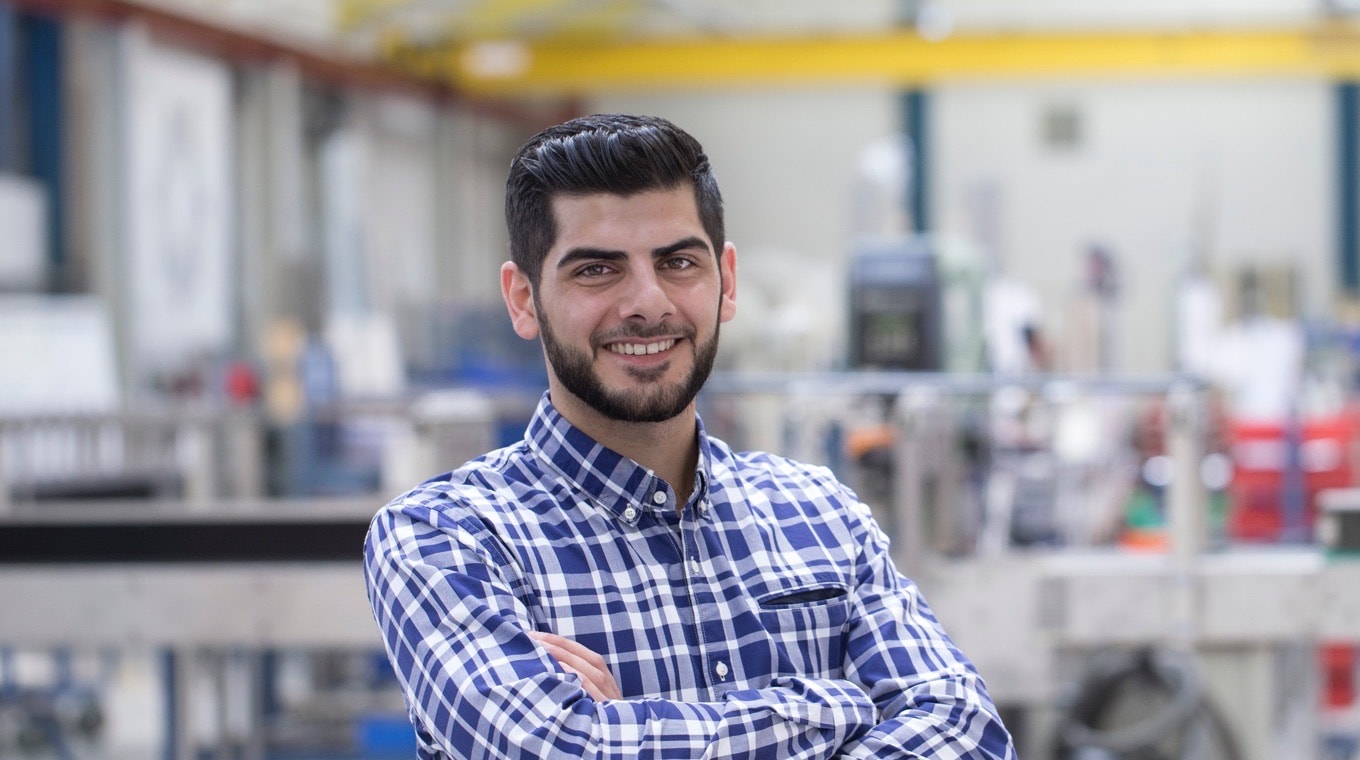I spent a total of four years studying for a bachelor’s degree in mechatronics: three years in China and one in Germany. I also learned German during the course of my studies. Of course, it was hard at first to learn a new language. I did the final year of my degree at the University of Applied Sciences in Zittau/Görlitz in 2011 and in 2012 I then started my master’s in electrical engineering at the Ruhr University in Bochum, majoring in automation technology. When I finished my master’s degree in 2017, I started work as a trainee in the kegging department in Bad Kreuznach. Kegs are small or returnable barrels that are chiefly used in the hospitality trade. We build systems that wash the containers and fill them with beer. My trainee program lasted one year. I was then taken on and worked for KHS in Bad Kreuznach for a further two years. My former boss put lots of trust in me and when I wanted to go back to China last year he helped me, for which I’m extremely grateful. I returned to my home country in November 2020 and began working at KHS China in Suzhou as a technical support specialist where I’m very happy.
I’d always been especially interested in automation technology even before I went to university and started exploring production technologies early on. For women in particular this isn’t that common; however, there are more female specialist workers and experts in this field than you might expect. I thus find it all the better to show that this branch of industry is also attractive to women. As both of my parents are engineers, this further encouraged me to go for a technical career. I very soon realized that I’d like to study something in this field.
“I learn something new every day and always like a challenge.”
I like to separate my tasks into input and output.
I read lots of different documentation, gather the information I need from this, learn and research using the programs on our machines and old constructions and in turn apply this to our new machines. As this involves collecting lots of data and information, I like to refer to this part of my work as ‘input’.
‘Output’ is how I refer to the expertise and knowledge of the machines, lines and entire technical organizational structure that I have and can pass on to other people and employees. As a developer I also have to implement various requirements from customers or colleagues in the form of software. For example, I wasn’t involved in the development phase of the blow molders in Hamburg yet I took part in training courses on these to learn about them so that I could share my knowledge with personnel in China, such as our commissioning engineers or colleagues in Sales.
You should seize the opportunity, especially when you’re young, and find out where your personal interests and strengths lie by doing internships or other activities, for example. You can then go into more depth and one day you’ll realize what subject suits you and which areas of knowledge you wish to explore further. I’d advise anyone interested in a technical career to first find out which direction they want to go in and to then think about what they eventually want to specialize in. I don’t think it’s bad if at first you don’t know exactly what you want to do. You first have to find this out.
I learn something new every day. Sometimes it can be a bit stressful but that’s OK because I like a challenge. I really like it when I can solve a problem that’s cropped up. I’m also regularly presented with challenges because of the international nature of my job. Especially after changing from a development department to one geared towards sales and service in China, I now better understand that development is closely linked to market demand. It’s particularly important that you react in good time here. Also, language barriers and lack of knowledge in development can severely limit communication or prevent a project from progressing. I like being of assistance here and this is something that challenges me.
I love traveling and I am generally happy to be out and about, regardless of where I’m headed. My destination isn’t important; the main thing is I’m out traveling. This is when I can really wind down and take time to think about things. When we’re able to start traveling properly again, I’d really like to return to Switzerland, however. I love it there and would be really happy if this were possible again soon.

“My work’s so exciting because I face new challenges every single day that a solution has to be found for.”